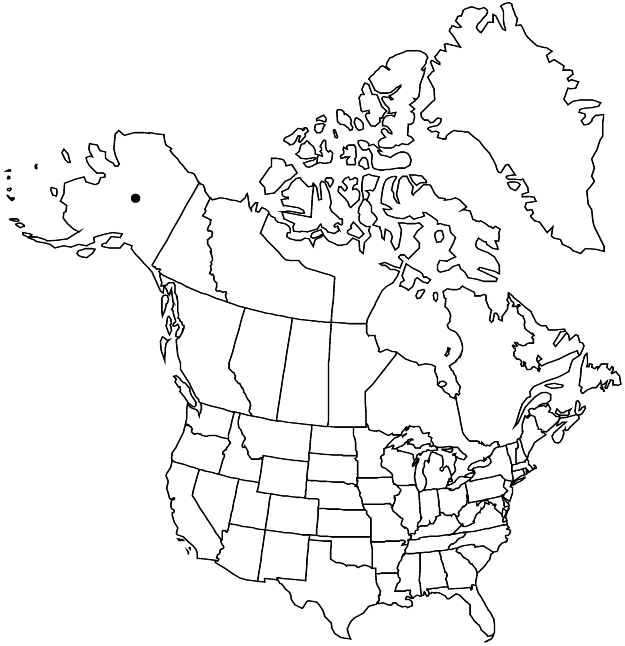Difference between revisions of "Rumex krausei"
Bot. Zhurn. (Moscow & Leningrad) 58: 1745. 1973.
FNA>Volume Importer |
FNA>Volume Importer |
||
| Line 27: | Line 27: | ||
|elevation=0-300 m | |elevation=0-300 m | ||
|distribution=Alaska;ne Asia (ne Russian Far East). | |distribution=Alaska;ne Asia (ne Russian Far East). | ||
| − | |discussion=<p>The name Rumex graminifolius was commonly misapplied to this species in northwestern North America and northeastern Eurasia.</p><!-- | + | |discussion=<p>The name <i>Rumex graminifolius</i> was commonly misapplied to this species in northwestern North America and northeastern Eurasia.</p><!-- |
| − | --><p>Rumex krausei is closely related to R. beringensis and probably represents the latter’s triploid race. Rumex krausei differs from R. beringensis in having larger flowers, fruiting inner tepals, and fruits, and shorter and less-branched or unbranched inflorescences. Rumex krausei occurs in eastern Chukotka, Russia, together with R. beringensis; however, it is believed to be confined mostly to clay soils and limestones. It has been reported from the Ogotoruk River on the northwestern coast of Alaska (B. A. Jurtzev et al. 1975) and some other Alaskan regions (western Seward Peninsula, capes Dyer and Thompson, and the Squirrel River). It may be expected anywhere within the range of R. beringensis.</p><!-- | + | --><p><i>Rumex krausei</i> is closely related to <i>R. beringensis</i> and probably represents the latter’s triploid race. <i>Rumex krausei</i> differs from <i>R. beringensis</i> in having larger flowers, fruiting inner tepals, and fruits, and shorter and less-branched or unbranched inflorescences. <i>Rumex krausei</i> occurs in eastern Chukotka, Russia, together with <i>R. beringensis</i>; however, it is believed to be confined mostly to clay soils and limestones. It has been reported from the Ogotoruk River on the northwestern coast of Alaska (B. A. Jurtzev et al. 1975) and some other Alaskan regions (western Seward Peninsula, capes Dyer and Thompson, and the Squirrel River). It may be expected anywhere within the range of <i>R. beringensis</i>.</p><!-- |
--><p>of conservation concern</p> | --><p>of conservation concern</p> | ||
|tables= | |tables= | ||
| Line 53: | Line 53: | ||
|publication year=1973 | |publication year=1973 | ||
|special status= | |special status= | ||
| − | |source xml=https://jpend@bitbucket.org/aafc-mbb/fna-data-curation.git/src/ | + | |source xml=https://jpend@bitbucket.org/aafc-mbb/fna-data-curation.git/src/8f726806613d60c220dc4493de13607dd3150896/coarse_grained_fna_xml/V5/V5_1025.xml |
|subfamily=Polygonaceae subfam. Polygonoideae | |subfamily=Polygonaceae subfam. Polygonoideae | ||
|genus=Rumex | |genus=Rumex | ||
Revision as of 18:35, 18 September 2019
Plants perennial, glabrous, with thick, densely tufted underground stolons. Stems erect or slightly ascending, 1 or several from base, sparsely branched in inflorescence,occasionally inflorescence simple or nearly so, 8–20(–25) cm; shoots usually densely crowded, not elongated. Leaves: ocrea brownish, membranous; blade narrowly linear or spatulate-lanceolate, not hastate (without basal lobes), 2.5–6 × 0.15–0.3(–0.4) cm, base narrowly cuneate (gradually narrowing into petiole), margins entire, flat or slightly revolute, apex obtuse or subacute. Inflorescences terminal, occupying distal 1/2 of stem, usually dense, narrowly paniculate with branches directed upward, or simple. Pedicels 1–4 mm. Flowers 3–7 in whorls; inner tepals distinctly enlarged, 2.3–3 × 1.8–3 mm (free wing 0.4–0.8 mm wide), base cuneate, apex obtuse or subacute. Achenes light brown, 1.5–2 × 1.2–1.9 mm. 2n = 21.
Phenology: Flowering summer.
Habitat: Clay and argillaceous soil, silty sand, rocky outcrops
Elevation: 0-300 m
Distribution

Alaska, ne Asia (ne Russian Far East).
Discussion
The name Rumex graminifolius was commonly misapplied to this species in northwestern North America and northeastern Eurasia.
Rumex krausei is closely related to R. beringensis and probably represents the latter’s triploid race. Rumex krausei differs from R. beringensis in having larger flowers, fruiting inner tepals, and fruits, and shorter and less-branched or unbranched inflorescences. Rumex krausei occurs in eastern Chukotka, Russia, together with R. beringensis; however, it is believed to be confined mostly to clay soils and limestones. It has been reported from the Ogotoruk River on the northwestern coast of Alaska (B. A. Jurtzev et al. 1975) and some other Alaskan regions (western Seward Peninsula, capes Dyer and Thompson, and the Squirrel River). It may be expected anywhere within the range of R. beringensis.
of conservation concern
Selected References
None.